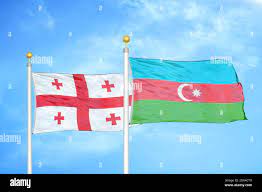
The South Caucasus republics of Azerbaijan and Georgia are holding talks over a possible green energy pipeline connecting the region to the European Union.
The two countries’ energy officials met with Hungarian and Romanian counterparts on the sidelines of COP29 UN environment summit in Baku on Tuesday, to discuss their plans to install hundreds of kilometers of fiber optic cable beneath the Black Sea, a venture they claim will bolster both green energy transitions and energy security.
"It’s symbolic that one of the COP29 energy initiatives is […] green energy corridors," Azerbaijan’s Minister of Energy, Parvis Shahbazov said in opening remarks.
This was the ninth time the four countries discussed the Black Sea power line project since its approval in 2022. The initiative that will oversee the transport of Caspian Sea wind power and other renewable energy supplies to European countries gained momentum after Russia’s full-fledged invasion of Ukraine as it highlighted EU’s reliance on Russian energy sources. Spike in energy prices across Europe forced the EU seek alternative energy sources. Azerbaijan, Georgia, Hungary and Romania launched the project in September this year.
Romanian Energy Minister Sebastian Ioan Burduja emphasized the necessity of developing these corridors for not only energy security but also for enhancing energy competitiveness, particularly highlighting the significantly higher electricity prices in Hungary and Romania compared to Western Europe.
Both Hungary and Romania seek to utilize Georgia as a transit route to Azerbaijan, regarded as a key prospective producer of renewable energy, specifically through offshore wind farms in the Caspian Sea.
Based on a feasibility study conducted by Italian energy consultancy CESI, over half of the additional renewable energy generated from this project is anticipated to come from Azerbaijani wind power, with the remainder derived from solar energy in Azerbaijan and various wind and solar initiatives across the other three member states.